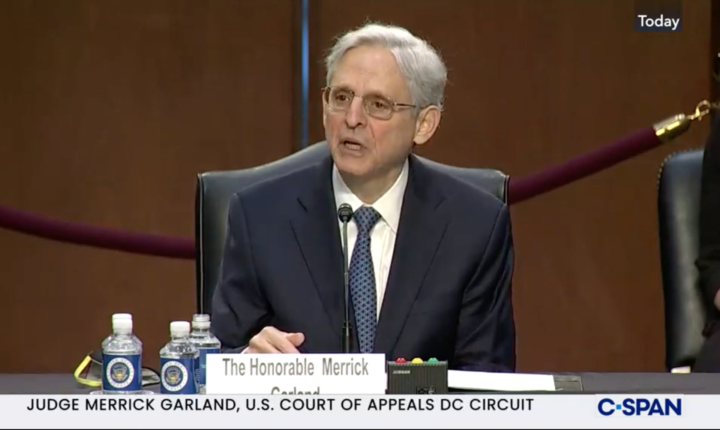Attorney General nominee Merrick Garland’s confirmation hearing testimony before the Senate Judiciary Committee was very significant given the present moment. In just a few minutes during his opening statement, Judge Garland covered the historical challenges faced by communities of color and the continual treat posed by the concentration of power within the white community:
“In conversations that I have had with many of you before this hearing, you have asked why I would agree to leave a lifetime appointment as a judge. I’ve told you that I love being a judge, but I have also told you that this is an important moment for me to step forward because of my deep respect for the Department of Justice and for its critical role of ensuring the rule of law. Celebrating DOJ’s 150th year reminds us of the origins of the Department, which was founded during Reconstruction in the aftermath of the Civil War to secure the civil rights that were promised in the 13th, 14th and 15th Amendments. The first Attorney General appointed by President Grant to head the new Department led it in a concerted battle to protect black voting rights from the violence of white extremists, successfully prosecuting hundreds of cases against white supremacist members of the Klu Klux Klan. Almost a century later, the Civil Rights Act of 1957 created the Department’s Civil Rights Division with a mission to uphold the civil and constitutional rights of all Americans, particularly some of the most vulnerable members of our society. That mission, on the website of the Department’s Civil Rights Division, remains urgent because we do not yet have equal justice. Communities of color and other minorities still face discrimination in housing, in education, in employment and in the criminal justice system, and they bear the brunt of the harm caused by pandemic, pollution, and climate change. 150 years after the Department’s founding, battling extremist attacks on our democratic institutions also remains central to the Department’s mission.”
While one might argue this testimony relates solely to the current situation in the US, greatly exposed by the events of January 6, last Monday United Nations Secretary-General Antonio Guterres, addressing the U.N. Human Rights Council, warned that white supremacy and neo-Nazi movements are becoming a “transnational threat” and have exploited the coronavirus pandemic to boost their support. U.N. High Commissioner for Human Rights Michelle Bachelet is to report to the council on March 18 on the systemic racism worldwide against people of African descent. This global inquiry was launched after George Floyd’s death in Minneapolis last May after a white police officer knelt on his neck for nearly nine minutes.
It is not a time for courageous people to let their guard down. Global systemic discrimination is much more organized than it has been for a long time. Churches are playing a role on dividing the people as well. A few months ago, Pope Francis expressed his concern about racist attitudes among some within his own church.
“There are circles and sectors that present themselves as ilustrados (enlightened) — they sequester the proclamation of the gospel through a distorted reasoning that divides the world between ‘civilized’ and ‘barbaric,’” he said in a November 2020 interview. “They consider a large part of the human family as a lower-class entity, unable to achieve decent levels in spiritual and intellectual life.”
Of course these positions are describing extreme situations, in special communities, but these “small” movements are supported and connected to a much larger community of people who share these views. Doing a few rounds of “diversity trainings” will not address the issue. The white community, my community, needs to stand up and be vocal against racism and discrimination wherever it appears. We can’t just let others do the job for us.






